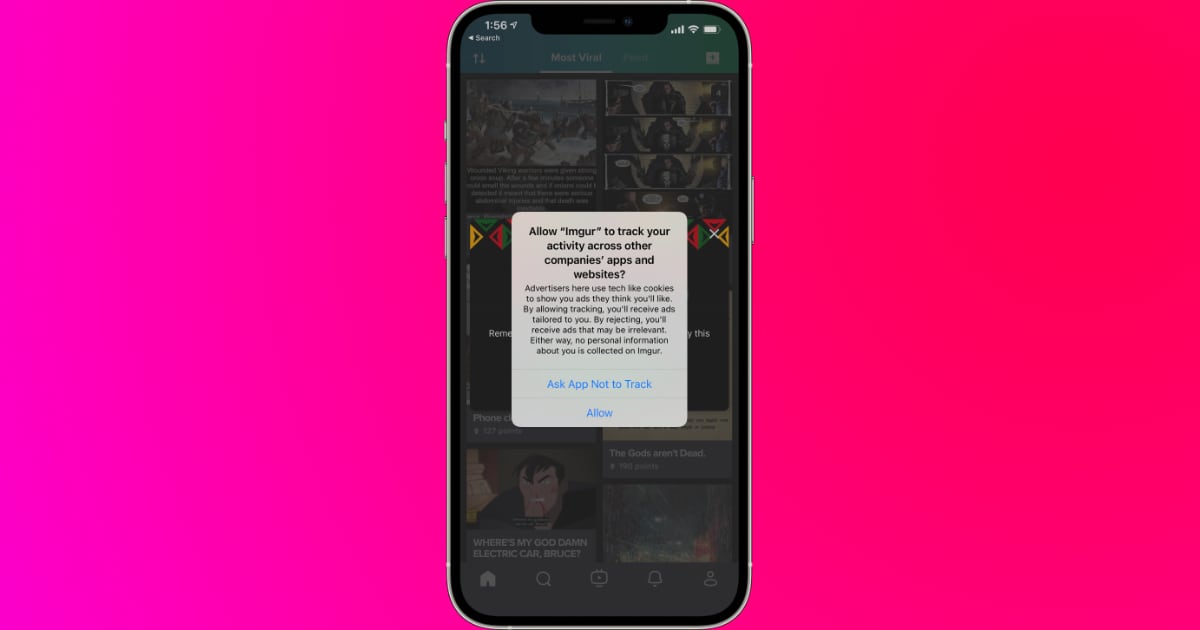A new report by The Wall Street Journal details how Procter & Gamble has been looking into methods to gather customer data, despite Apple’s upcoming new App Tracking Transparency privacy feature. The company has been testing a new technique called CAID with Chinese trade groups and tech firms, backed by China Advertising Association, to enable device fingerprinting.

Procter & Gamble and others working on methods to bypass App Tracking Transparency
P&G is looking to use this device fingerprinting data to enable ad targeting that will likely go against the reason why Apple’s App Tracking Transparency has been developed. Of course, if Apple finds that any app, from any developer, is implementing any workarounds to bypass this privacy feature, the company will not hesitate to reject such apps.
The company has joined forces with dozens of Chinese trade groups and tech firms working with the state-backed China Advertising Association to develop the new technique, which would use technology called device fingerprinting, the people said. Dubbed CAID, the advertising method is being tested through apps and gathers iPhone user data. Through the use of an algorithm, it can track users for purposes of targeting ads in a way that Apple is seeking to prevent.
When inquired, P&G gave a vague statement that it is looking into ways to deliver “useful content” to customers while keeping transparency, privacy, and consent as priorities. Apart from Procter & Gamble, Deloitte LLP, PricewaterhouseCoopers, Nielsen, and ByteDance are also looking into this technique to bypass Apple’s new privacy rule. ByteDance and Tencant were previously reported by the Financial Times to be working on a tool to bypass App Tracking Transparency.
A spokesperson from Apple told WSJ:
“The App Store terms and guidelines apply equally to all developers around the world, including Apple. We believe strongly that users should be asked for their permission before being tracked. Apps that are found to disregard the user’s choice will be rejected.”
App Tracking Transparency intends to get apps to require user consent before they can track them across the Internet. It is a major change for iOS, which is used by a billion users, and will have an impact on how advertisement businesses work. Apple is already rejecting apps that do not follow App Tracking Transparency rules. The company has also been reminding developers of its implementation in iOS 14.5, iPadOS 14.5, and tvOS 14.5, which will be released in a few weeks.
Read more:
- LinkedIn will stop collecting IDFA from its iOS apps to align with Apple’s privacy update
- A research study finds Facebook and Instagram are the most invasive apps collecting users’ data
- Chinese tech giants are reportedly working on a tool to bypass Apple’s new App Tracking Transparency feature
- Twitter CFO supports Apple’s new ATT privacy feature, says it will give small businesses a ‘level playing field’
- Google is looking for Apple’s App Tracking Transparency like privacy alternative on Android – Report